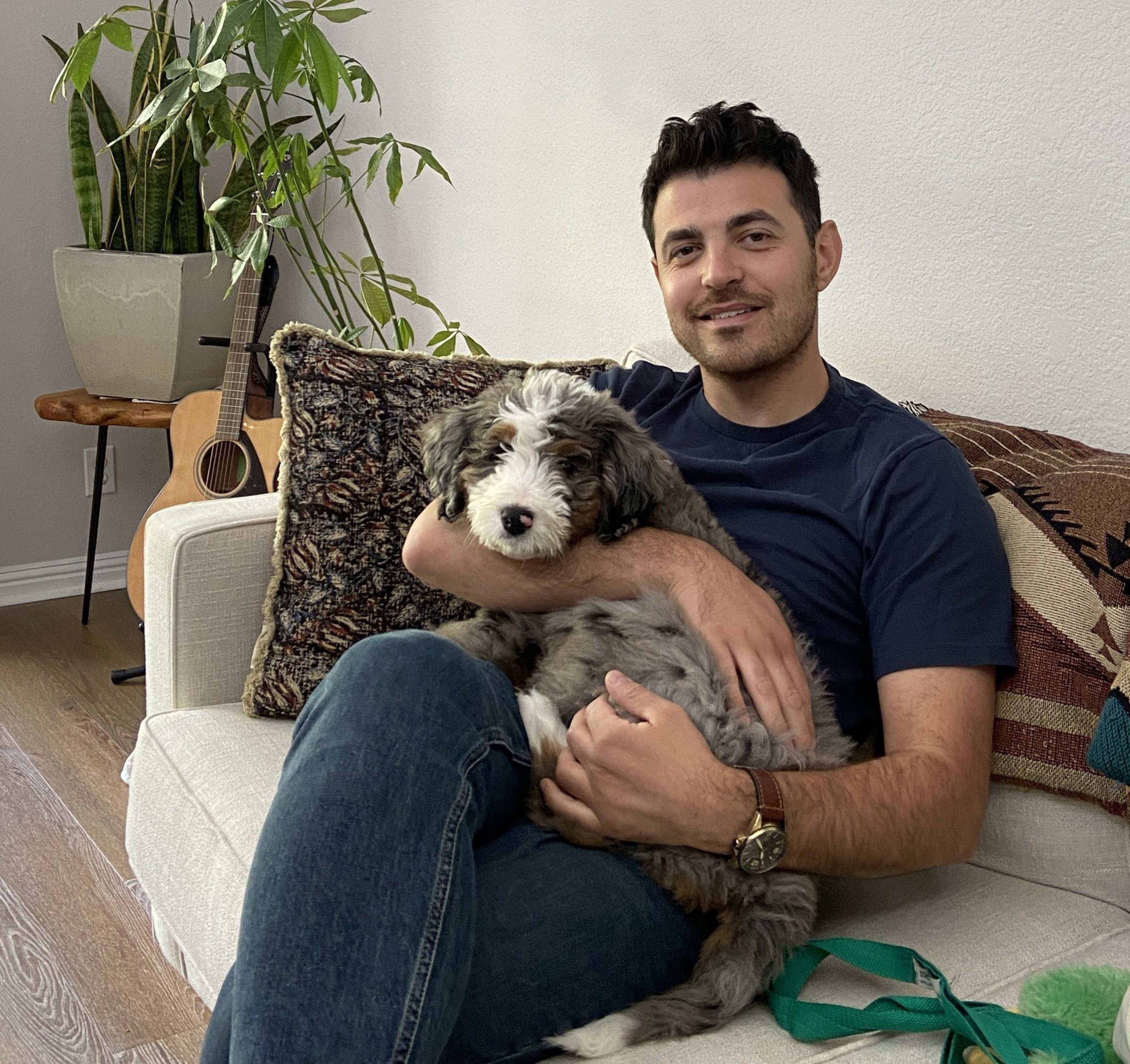Shortly after the debut of Netflix’s “Nobody Wants This” — a comedy series featuring Adam Brody as Noah, a rabbi who dates a non-Jewish, sex-positive podcaster played by Kristen Bell — Rabbi Noah Westreich’s cellphone started blowing up.
“Everyone was forwarding me articles about the show and the hot rabbi named Noah,” said Westreich, a 32-year-old assistant rabbi at Emanu-El temple in Presidio Heights who is, by most standards, pretty hot himself.
Westreich is not the only young, attractive rabbi in the Bay Area feeling the glow of the “hot rabbi effect” since “Nobody Wants This” premiered in September. They’ve been fielding questions about their views on the show (is it “mildly antisemitic (opens in new tab)”?) and receiving compliments from congregants on their resemblance to the actors. Mostly, the rabbis are here for it. “People have called me ‘the’ hot rabbi,” Westreich said. “I’m flattered.”
Rabbi Zvika Krieger, the 41-year-old leader of Chochmat HaLev (opens in new tab), a spiritual community in Berkeley, who runs Shabbat services at Burning Man’s Milk and Honey camp, said he’s asked about “Nobody Wants This” every day. “As a single male rabbi, they think that’s my life,” he said.
Rabbi Genevieve Greinetz, the 36-year-old assistant rabbi of Peninsula Temple Beth El (opens in new tab)in San Mateo, is a big fan of the show. “It helps shift the connotations for what people think of a rabbi,” she said, adding, “I have so many good-looking colleagues.”
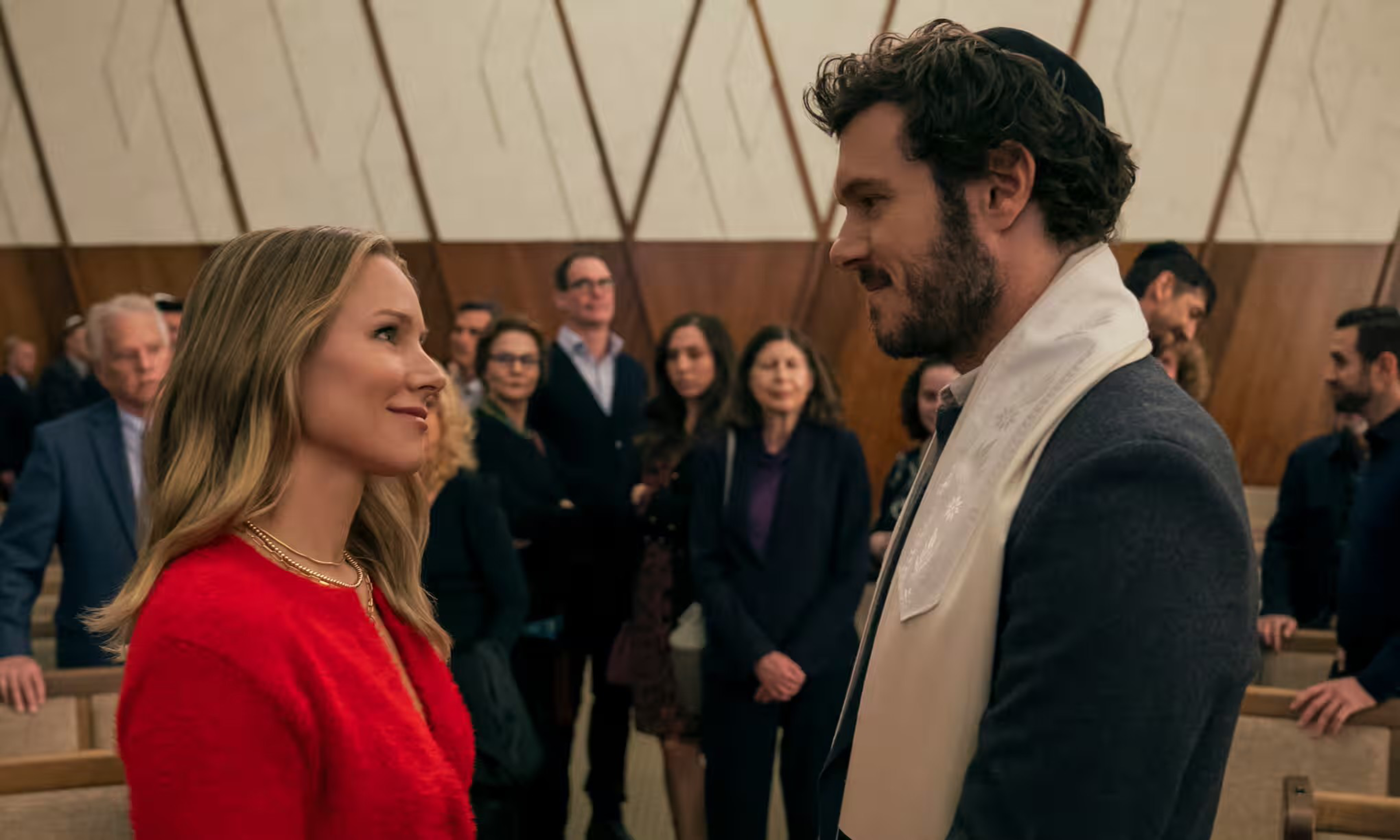
All three rabbis have watched the show, though Krieger hasn’t finished the season yet. They have thoughts. To Westreich, the allure of the other Rabbi Noah isn’t just good bone structure. “The appeal is how approachable and relevant Adam Brody is as Rabbi Noah,” he said. “There’s surprise that a religious figure could be so relatable.”
That’s a common theme in his own life. “People have grown up with this idea that a rabbi is a hunched-over old man with a long beard,” he said. “But I’m a regular guy who enjoys culture and living in cities. … I’m interested in a lot of things that millennials are interested in, not to the exclusion of my Judaism.”
Krieger — who, in another life, was a director of responsible innovation at Meta — agrees. “People have a kink for pulling back the curtain on people they see as pious,” he said. “The show gets at human themes that transcend religion, like where can you find love, and in what ways do you need to be similar to someone to love them?”
‘We are not your bubbe’s rabbi’
The show gets at how difficult it can be to date as a rabbi. Westreich noted that some dates have been intimidated by his rabbinical status; others viewed him as a “celebrity” catch, ideal for bringing home to a Jewish mother. “People have tried to introduce me to their offspring for marriage, or even just for themselves,” he noted — something else he has in common with the fictional Rabbi Noah.
Rabbis have always been catnip to their communities, Westreich notes. In fact, his mentor, Rabbi Matt Green from Brooklyn, parlayed this into Grindr Shabbat, a community dinner filled with his Grindr matches. “We are not your bubbe’s rabbi,” said Westreich.

Dating as a rabbi has always been tricky for Krieger. “I’ve had multiple people try to set me up, and congregants who have expressed interest in dating me,” he said. To address this, he appointed an ethics advisor “to help me navigate … being a single, sex-positive rabbi in a community.”
For a while, Krieger avoided putting “rabbi” or anything related to his occupation on his dating profile (he’s on all the apps). “I was worried it would scare people away,” he said. But he changed his mind. “I love what I do, and anybody who would be scared away by me being a rabbi is probably not somebody who I would want to be with.” His profiles now identify him as a “spiritual leader.”
Many of the issues Brody’s character encounters on the show resonate with Krieger — particularly the setup, in which Rabbi Noah is newly single after ending an engagement to a “suitable” Jewish woman. “There’s the idea of sleepwalking into a marriage, where you’re like, ‘This person makes sense,’ but you have the nagging feeling: Is this really it?” Krieger said. “I found that scene very moving.”
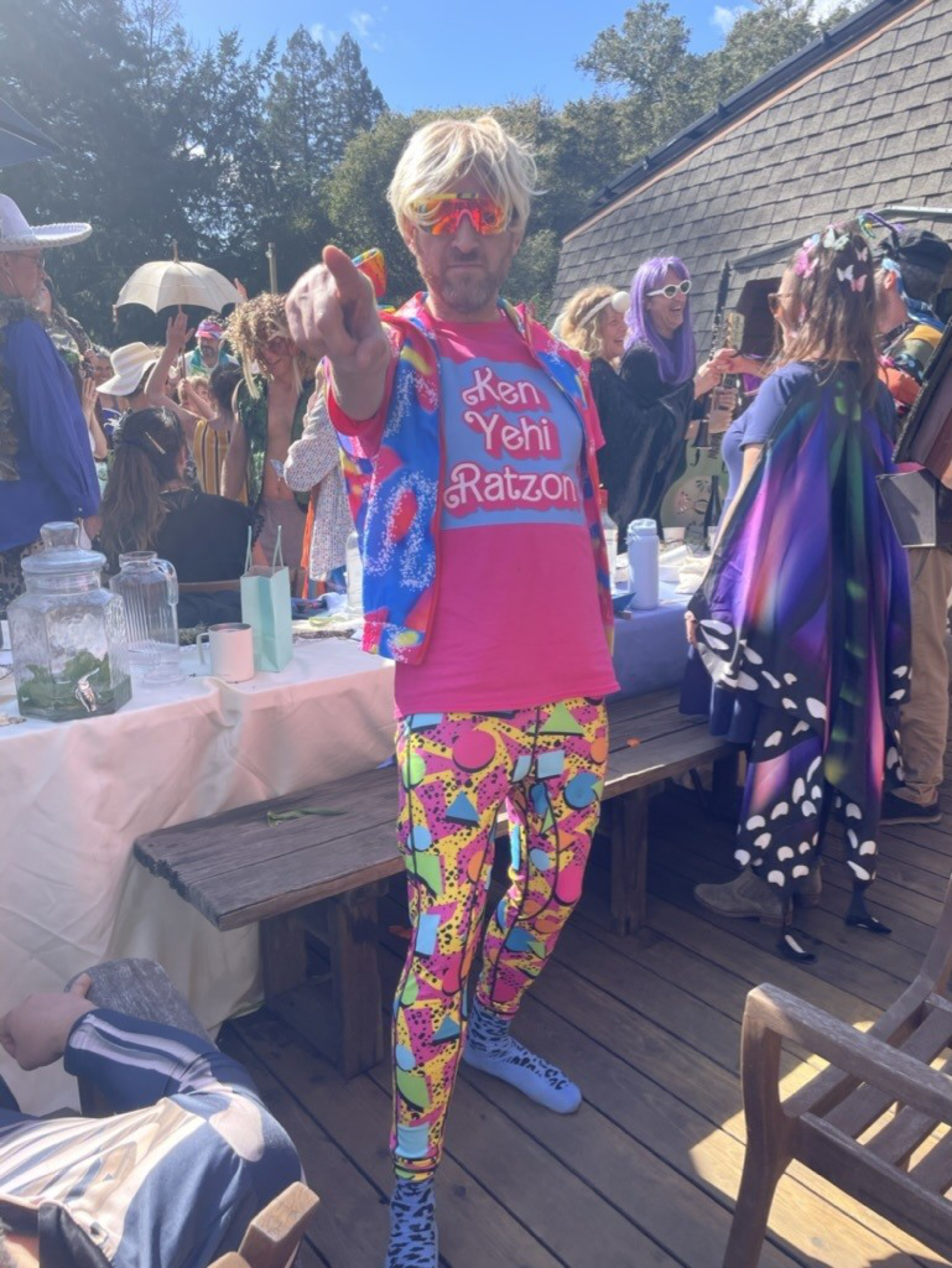
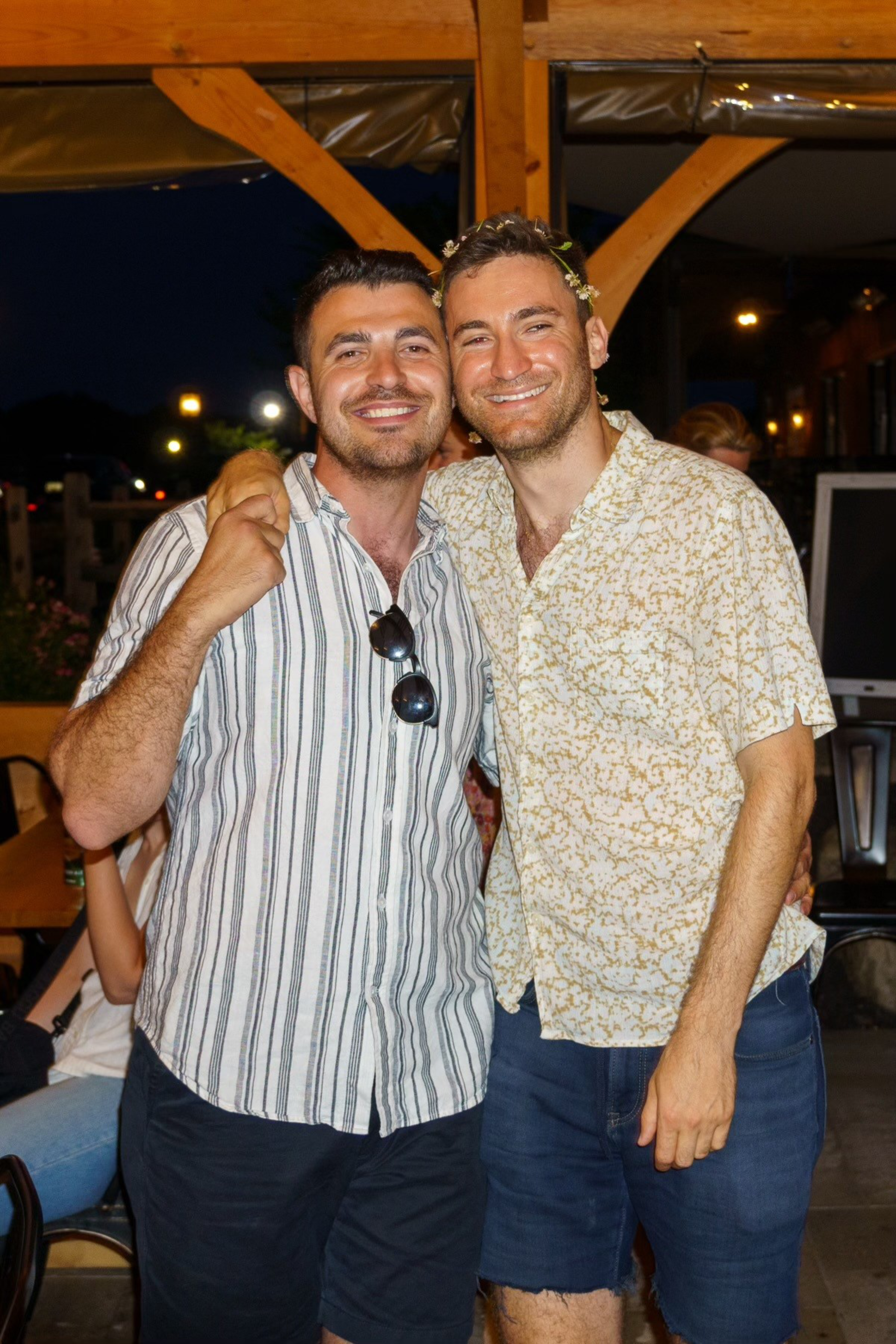
San Francisco’s real hot Rabbi Noah isn’t on the market anymore. In June, Westreich married Noah Zweben, a software engineer at AI startup Warp. (Yes, he married another Noah.) “He was very tickled and excited about the fact that he was dating a rabbi,” Westreich said. “But we also got to know each other on a human level. He understands that I have a certain commitment to that community.”
Staying in shape remains important to this rabbi; Westreich spends four to five hours a week swimming, biking, walking his dog, or practicing yoga. “We got a rowing machine off our wedding registry,” he said. “We also asked for a personal trainer.”
Krieger, who prefers CrossFit and surfing, likes the “hot rabbi” association but emphasized that there’s more to him than his abs. “Hotness comes in lots of different forms. You’re on the podium, and people are projecting all sorts of things onto you and looking to you to validate and affirm them,” he said. “That’s why I don’t date people in my community.”
Greinetz has largely avoided this issue.“My community knows I’m single, but they’ve been very respectful,” she said. When it does come up, she handles it. “Rabbis are really good at redirecting conversations.”
Most of Greinetz’s dates — she is always upfront with them about her position as a rabbi — find her job an interesting novelty and are curious about what it entails. “They’ve never dated a rabbi before, so,” she said. What they quickly learn is that she does a lot of normal hot-person stuff, enjoying surfing in Pacifica, lifting weights, and practicing yoga.
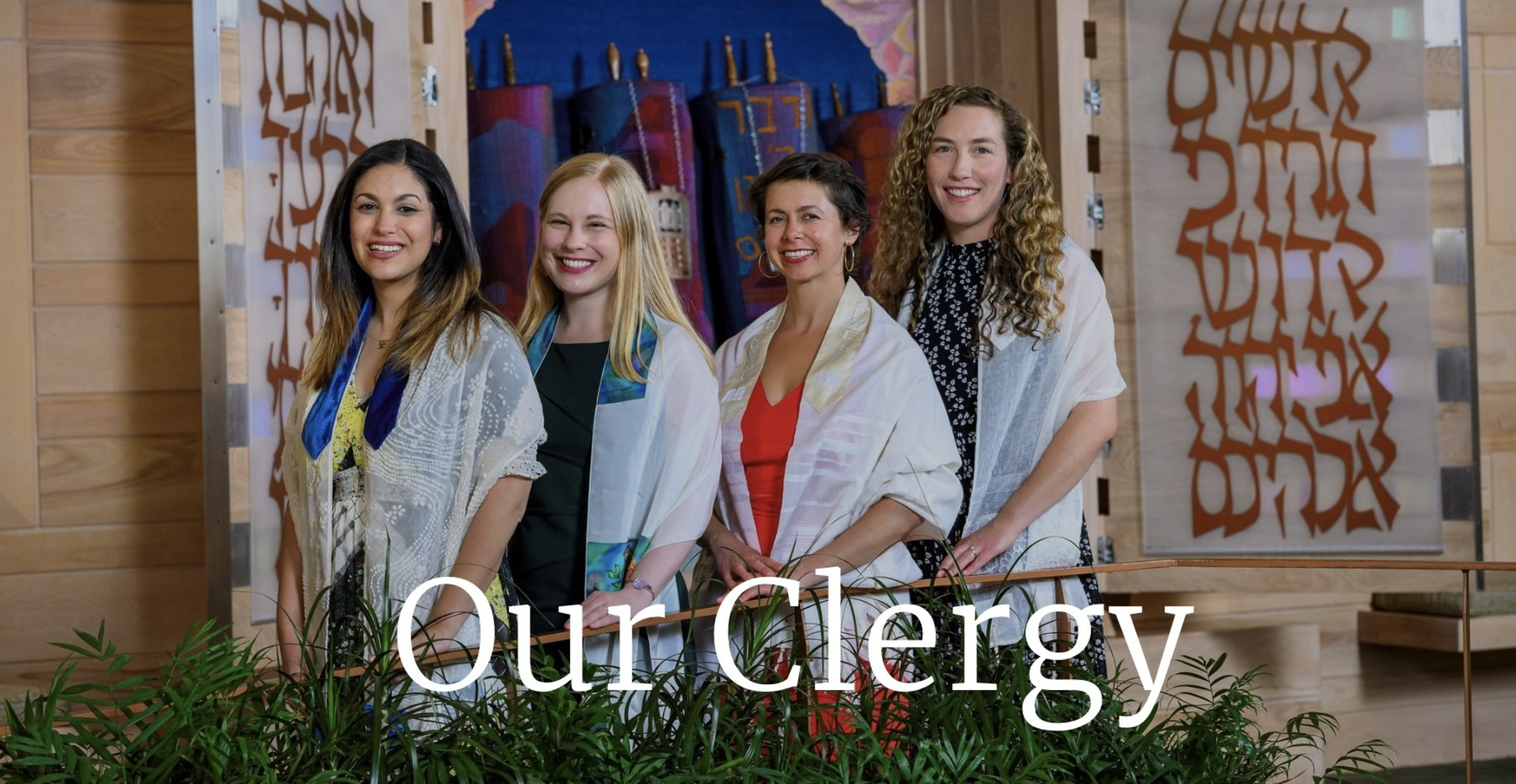
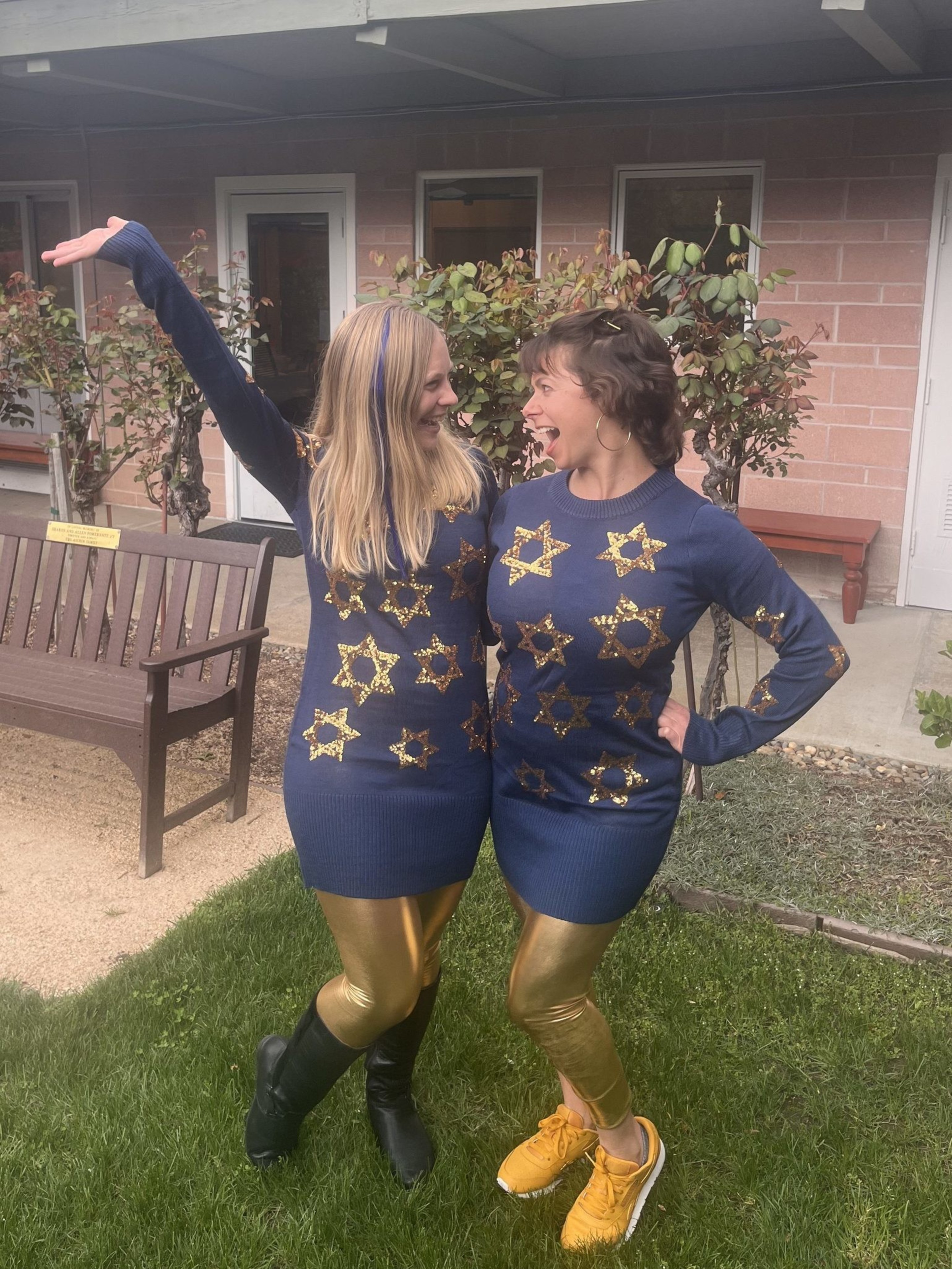
Of course, not every Bay Area “hot rabbi” has embraced the show. Rabbi Aaron Torop, the assistant rabbi at Temple Isaiah in Lafayette, hasn’t watched it, but his colleague Rabbi Jill Perlman has. “Congregants have asked if we’re watching it and what we think,” she said. “I appreciate that Judaism is generally portrayed positively, and that rabbis are seen as real people with real feelings and real problems.” However, she noted (accurately), “the portrayal of Jewish women is stereotypical and cringe-worthy.”
It’s a challenging time to be Jewish, said Krieger: “It’s really bad for Jews in the Bay.” His community has reported suffering physical and verbal assaults, some related to Israel’s war in Gaza, with kids being spat on and called “kikes” in schoolyards. “It’s nice to find Jews portrayed in a positive way by the media, as a lot of people feel under attack,” he said.
Still, he agreed with Perlman that there are problematic elements to the show. “The horrible portrayal of Jewish women is insulting and borderline antisemitic. Each female character is so nauseating.”
Westreich dislikes the derogatory use of the word “shiksa” in the show, used to refer to Kristen Bell’s gentile character, and how interfaith marriage is viewed as a no-go. “Liberal Jewish organizations are rapidly moving toward the full acceptance of interfaith relationships,” he said. The Hebrew Union College, a training school for rabbis with campuses in L.A., New York, Cincinnati, and Jerusalem, this year dropped its ban on interfaith relationships for students. (opens in new tab)

Greinetz said, however, that the friction produced by the show’s shiksa/rabbi meetcute is relevant. “It’s changing, but many rabbinical schools won’t ordain someone dating a non-Jew,” she said.
Netflix did not respond to a request for comment.
But is the show good for the Jews? The general consensus among the hot rabbis quizzed by The Standard is that “Nobody Wants This” is a solid win, and not just for the rabbinically ordained. “I love the contradiction of it being like a popular, feel-good expression of Jewish life, in contrast with the somber, upsetting, painful reality of life post-Oct. 7,” said Westreich.
Members of his congregation are wrestling with what they see as a rising tide of anti-Jewish sentiment in mainstream culture. “They’re struggling to see the way forward,” he said, “and this is a reminder that we can laugh and experience some joy, even in the hard times.”
